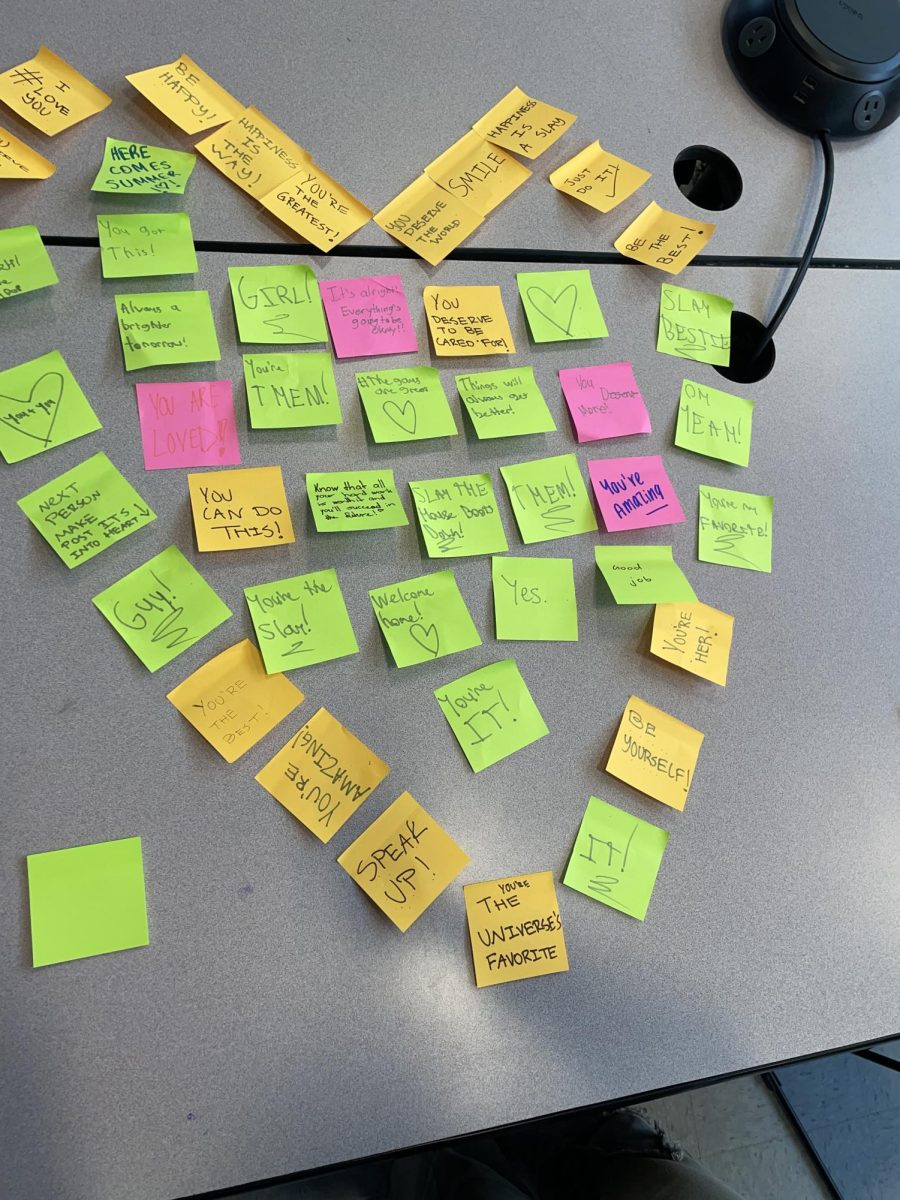Sleep deprivation causes lasting negative effects on teens
November 1, 2018
How many hours of sleep do you typically get on a school night? Total Voters: 31
![]() Loading ...
Loading ...
You’re staring at a massive blank page on your screen and your eyes get droopy, struggling to stay open. Your frail fingers slowly slip away from your keyboard as your mind wanders in a lull to drift away into a sea of slumber. Whatever keeps you up could be the very caffeine that envelops your coffee in the Mickey Mouse mug on your desk alongside piles of textbooks or the numbers and letters that appear on your report card once you strenuously complete your work.
Tragic, isn’t it? This is a conflict a multitude of high school students face throughout their academic careers.
Why Is Sleep Important?
If you’ve ever felt consistently sleepy or super tired, be it during class or after a night with no sleep, then you may have noticed that you perform worse in your work and movements. These are common signs for a lack of sleep, which becomes problematic if a habit of losing sleep is formed.
Sleep is important for multiple reasons, a major one being a consolidation of memories. Memory consolidation basically processes and stores memories from the short-term to long-term, allowing for better memory and performing better on retention-based tasks like matching or fill-in-the-blank quizzes.
That’s why it’s even more important for adolescents to get quality sleep so that our bodies and brains function better each and every day. Physical processes that occur in our body such as creating hormones and repairing damaged tissue, and our mental processes like memory consolidation, all need sufficient amounts of sleep to develop.
Without getting much-needed sleep, working at slower paces, clumsiness, and sleep deprivation can develop with other peculiar side effects that would be detriments to a person’s health.
How Much Sleep Should I Get?
Sleep recommendations are numerically displayed by the number of hours each age range should receive per night. Generally, less sleep is suggested for people as they grow older, with 7 hours being the lowest recommended number of hours for the oldest age range.
According to the National Sleep Foundation, an organization of sleep experts from multiple medical backgrounds, recommends that teenagers in the age range of 14-17 years old are recommended to have 8-10 hours of sleep every night, though the range may vary by at most two hours.
By getting enough sleep, studies show that people are able to go through the five sleep stages that are essential to sleeping healthy. The first four stages, known collectively as Non-Rapid Eye Movement sleep (NREM), gradually slow down muscle activity, body temperature, heart rate, and brain waves. NREM sleep is followed by REM sleep, which involves the eyes moving side-to-side quickly and varying heart rates, breathing, and brain activity alongside more dreaming.
Getting these recommended hours of sleep allow for these stages to be complete, and these stages comprise a sleep cycle which lasts around 90 minutes, therefore the recommended hours are suggested according to these cycles and waking up at the right time.
How Can I Get More Sleep?
When losing sleep, there must be a way to beat it. That’s why there are multiple proven strategies to get an adequate amount of sleep and ultimately lead a healthy sleeping pattern, even with a busy schedule.
Here are some useful methods for winning back the sleep you deserve:
Digital Methods
- Sleep Calculator – Using the aforementioned sleep stages/cycles as the basis for its calculations, the Sleep Calculator predicts the times you should wake up if you slept within the next fifteen minutes and when you should sleep for a time you want to wake up at.
- Sleep Cycle Alarm Clock – Living in the 21st century does come with its benefits, especially what’s within your very own electronic devices. The Sleep Cycle app monitors your sleep patterns and predicts a specific time to wake you up with an alarm during your lightest phase of sleep to make you feel less groggy in the morning.
Time Management
- Try to do work ahead of time or passively when you have extra time to help yourself have less work later on.
- Use an agenda, planner, or other tracking method for writing down assignments, due dates, and important test dates or activities ahead of time.
- Ask around for help and tips on how people manage their time and busy schedules, especially those who have similar schedules so that you’ll understand ways to deal with work and extracurriculars.
No matter how difficult school may be on your schedule, sleep difficulties can definitely be overcome one way or another to feel strengthened and energized for the next day. If you still decide to sleep for two hours a night though, then make sure you’re at least watching a good show!

















